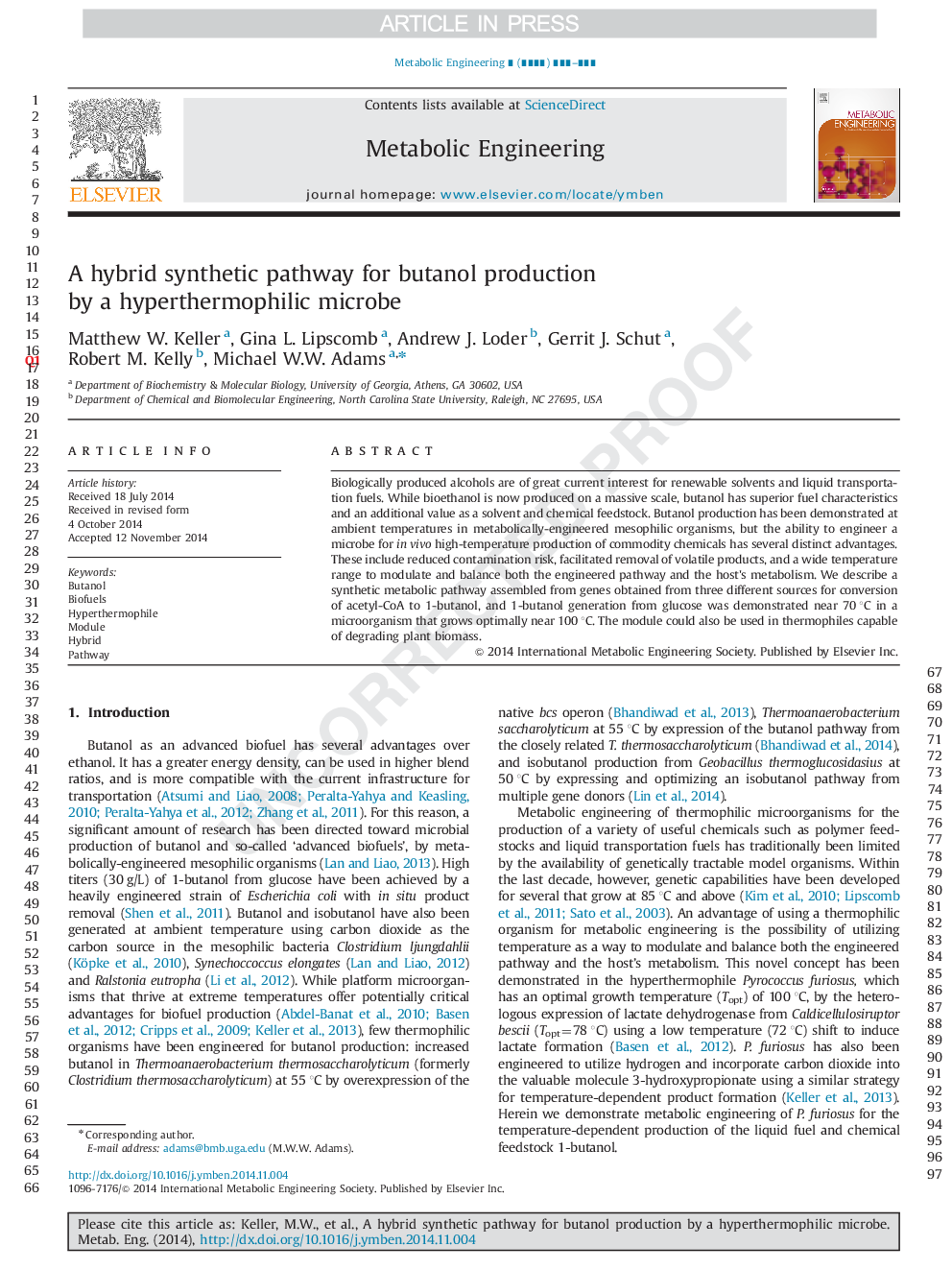| Article ID | Journal | Published Year | Pages | File Type |
|---|---|---|---|---|
| 6494513 | Metabolic Engineering | 2015 | 6 Pages |
Abstract
Biologically produced alcohols are of great current interest for renewable solvents and liquid transportation fuels. While bioethanol is now produced on a massive scale, butanol has superior fuel characteristics and an additional value as a solvent and chemical feedstock. Butanol production has been demonstrated at ambient temperatures in metabolically-engineered mesophilic organisms, but the ability to engineer a microbe for in vivo high-temperature production of commodity chemicals has several distinct advantages. These include reduced contamination risk, facilitated removal of volatile products, and a wide temperature range to modulate and balance both the engineered pathway and the host׳s metabolism. We describe a synthetic metabolic pathway assembled from genes obtained from three different sources for conversion of acetyl-CoA to 1-butanol, and 1-butanol generation from glucose was demonstrated near 70 °C in a microorganism that grows optimally near 100 °C. The module could also be used in thermophiles capable of degrading plant biomass.
Related Topics
Physical Sciences and Engineering
Chemical Engineering
Bioengineering
Authors
Matthew W. Keller, Gina L. Lipscomb, Andrew J. Loder, Gerrit J. Schut, Robert M. Kelly, Michael W.W. Adams,
